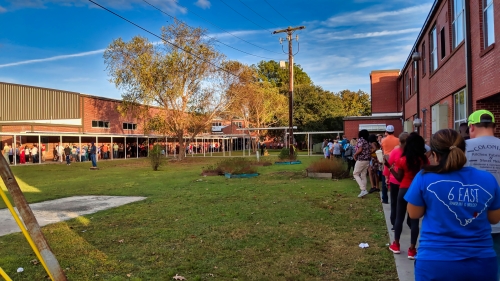South Carolina’s Election Reform Bill: What Did It Do?
Palmetto Promise Institute had a unique role in the 2022 election reform legislation. We assigned ourselves the task of combing through the hundreds of reform ideas receiving traction around the country with an eye to what was needed most in South Carolina.
Our list of the Top 20 Changes Needed Now focused on four key areas: Absentee Ballot Security, Voter Roll Integrity, Polling Place Standards, and Legal & Other Statutory Reforms.
At the end of the day, 17 of our 20 made the cut and were included in the law that passed both houses without a dissenting vote. The contrast to the old law is like night and day!
- Absentee Voting by Mail. The most dramatic change is to our requirements for Absentee Voting by Mail both in Requesting an Absentee Ballot and Returning an Absentee Ballot.
Buckle up, here we go!: The number of excuses for absentee voting has been reduced from 15 to 8, only an elector or immediate family member may request an absentee ballot, the last four digits of SSN are required for requesting an absentee ballot, only an elector or an immediate family member or a duly authorized representative may return an absentee ballot, the number of absentee ballots a single person can return is limited (6 rather than no limit before), the returner of the ballot must provide photo ID, and the witness to the absentee ballot request must be verified. Whew!
- Voting in Person. Before, a voter could vote in person in the 29 days before an election for even the flimsiest of reasons because excuses were broad and not verified. Under the new law, voters can vote in person with no excuse required for two weeks before the election.
- Election Systems & Ballots. Citizenship must be verified for registering to vote, non-citizen voters must be removed from the rolls, the legislature must oversee voter list maintenance, the state election commission and county election commissions are charged with updating voter status changes within 7 days, databases of deceased voters must be used to purge the rolls, paper ballots must have security features, and voting systems must not be connected to the internet.
- Other Strong Improvements. Violation of election laws is now a felony rather than a misdemeanor, the General Assembly has legal standing to protect the election statute, the relationship of the state election commission to county election boards has been clarified, private voter registration efforts (remember Zuck Bucks?) are regulated, and the Senate must consent to the Governor’s choice of the Executive Director of the State Election Commission.
It is no surprise then that our friends at the Foundation for Governmental Accountability rated the new South Carolina election law Number 1 in America. (Other analysts have done so as well.)
That’s an accomplishment worth celebrating.






